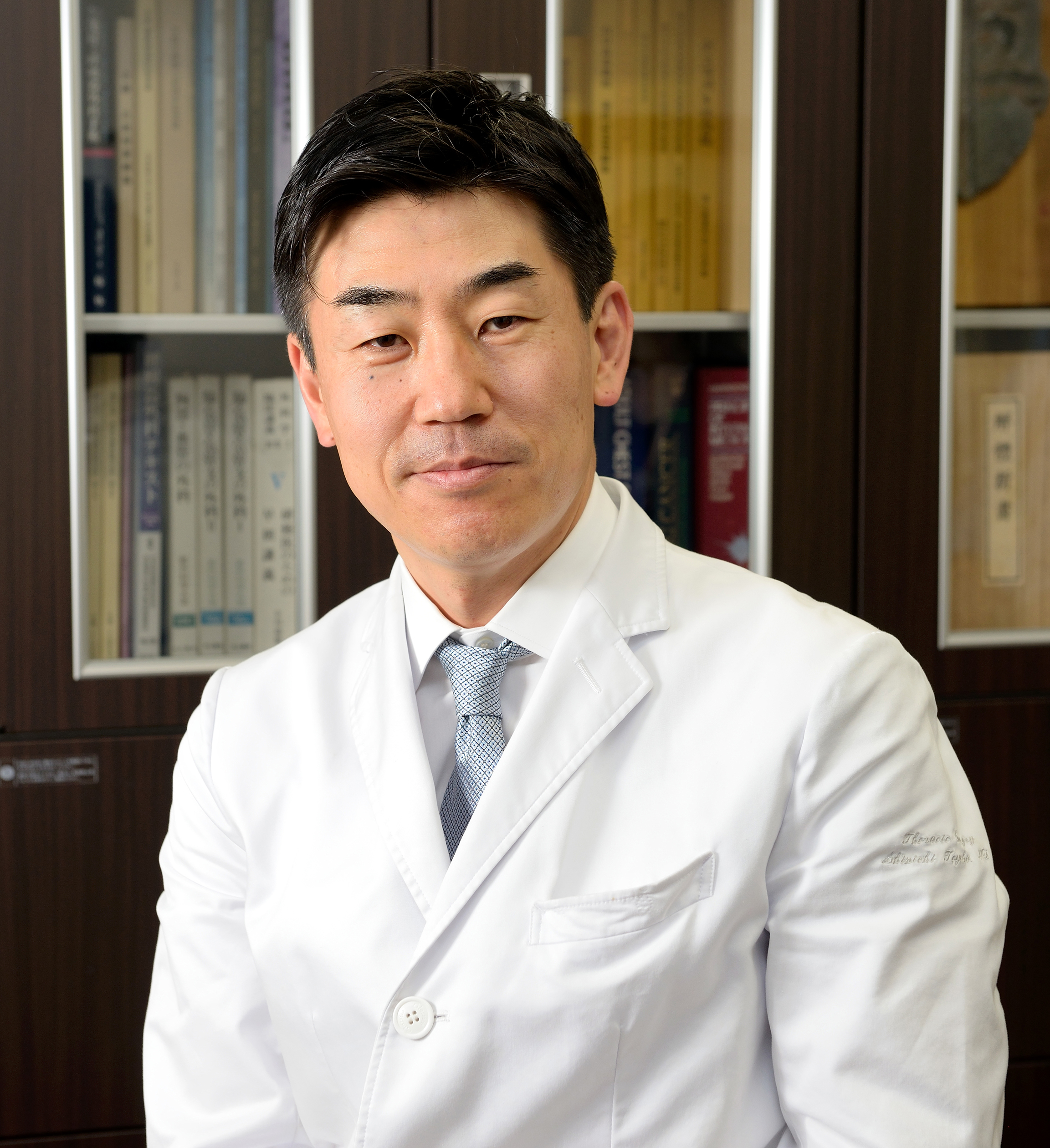Message from the Director of the Department
Our department provides high-quality surgical treatment for the patients with thoracic diseases including lung, mediastinal, and pleural malignancies, lung transplantations, and more. Our team with 10 national board-certified thoracic surgeons uses minimally invasive techniques in addition to extended surgical procedures combining surgery with chemotherapy, radiotherapy, targeted therapies, and immunotherapy. Please feel free to contact us if you are interested in the treatments offered by our department.

Director,
Department of General Thoracic
SurgeryShinichi Toyooka
Scope of Target Diseases
The scope of target diseases covers widely various thoracic diseases in general, including diseases to which lung transplantation is applicable, primary lung cancer, pleural mesothelioma, metastatic lung tumor, pneumothorax, mediastinal tumor, chest wall tumor, myasthenia gravis, emphysema, and infectious lung diseases to which surgical treatment is applicable.
Features and Description of Medical Care
Our techniques that are covered by health insurance programs are presented below.
- Complete VATS for lung cancer (lobectomy, segmentectomy and partial resection)
- Lung cancer surgery after induction chemoradiotherapy, including complication ablation of great vessels and vertebral bodies, and pulmonary angioplasty and bronchoplasty
- Complete VATS for mediastinal tumor, including extended thymectomy for myasthenia gravis
- Team medical care for safe respiratory surgery via intensive pre-operative and postoperative management
- Surgical procedures to avoid pneumonectomy (autologous lung transplantation and complicated bronchoplasty)
- Living-donor and brain-dead donor lung transplantation

We provide the best medical care to satisfy every patient. A surgical conference is held every week to provide optimal treatment for each patient who undergoes surgery. We also hold a conference every two weeks with the Department of Respiratory Medicine and Radiology, and discuss the applicability of surgery, chemotherapy, radiotherapy, and radiofrequency ablation, etc., from different points of view.

